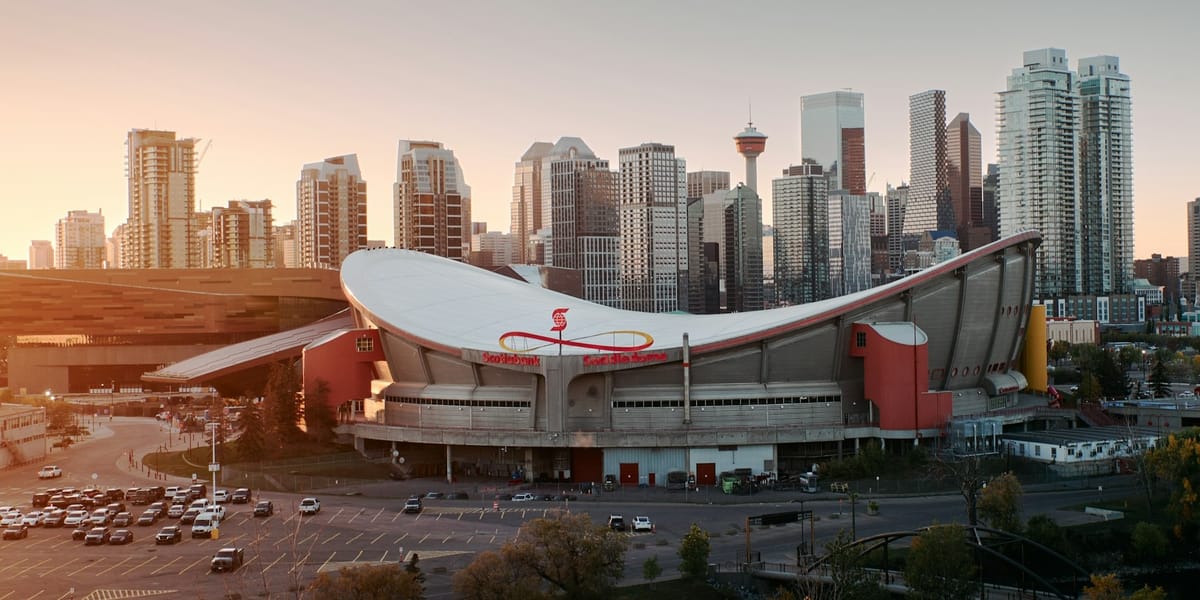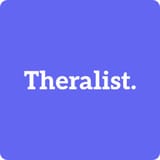Mental Health Support for New Calgarians: 15 Essential Resources You Need to Know
Find free and affordable mental health resources for newcomers in Calgary. Access therapy in 70+ languages, crisis support 24/7, and culturally sensitive counselling. Complete guide to Calgary therapists who understand immigrant experiences.

Moving to Calgary from another country is exciting. It is also overwhelming.
You might feel homesick. You might struggle with language barriers. Employment stress, cultural adjustment, and isolation are common. These feelings are normal. They are not a sign of weakness.
The good news? Calgary offers comprehensive mental health support specifically designed for newcomers. Many services are free. Most are available in multiple languages. All understand what you are going through.
This guide shows you exactly where to find help in Calgary when you need it most.
Why Mental Health Matters for Newcomers
Starting over in a new country creates unique stressors. Research shows that newcomers face specific mental health challenges during settlement.
The Immigration, Refugees and Citizenship Canada recognises that settling in a new country is "exciting and challenging." Post-arrival stresses can increase mental health risk. This includes underemployment, language barriers, discrimination, and separation from support networks.
A recent University of Alberta study highlighted the mental health toll of underemployment among skilled immigrants. Many newcomers experience depression and anxiety when their credentials go unrecognised. When professional identities are lost, mental wellbeing suffers.
Here is what newcomers commonly experience:
Acculturative stress: Adapting to new cultural norms, values, and ways of life creates ongoing stress. You are learning new social rules while maintaining your identity.
Language barriers: Limited English proficiency can affect job prospects, social connections, and daily tasks. This creates frustration and isolation.
Loss of support networks: You left behind family, friends, and community. Building new connections takes time.
Economic pressures: Financial strain from underemployment or credential recognition delays adds significant stress.
Identity challenges: Your professional identity, social status, and sense of self may shift dramatically after immigration.
The Mental Health Commission of Canada's strategy acknowledges that immigrants and refugees face challenges that put mental health at higher risk. But you do not have to navigate these alone.
Calgary has built an extensive network of culturally sensitive mental health services. These resources understand your experience. They speak your language. They know what adjustment looks like.
Understanding Your Rights and Confidentiality
Before exploring available resources, you need to know something important.
Seeking mental health support will not affect your immigration status. This is protected by Canadian privacy laws and professional ethics.
What you discuss in therapy remains confidential. The only exceptions involve immediate risk of harm to yourself or others. Even then, the focus is on safety, not immigration status.
Mental health professionals in Canada follow strict confidentiality standards. Your counsellor cannot share information without your consent. This includes sharing with immigration authorities, employers, or family members.
You have the right to mental health care. Using these services shows strength and self-awareness, not weakness.
Free Mental Health Services for Newcomers in Calgary
1. Centre for Newcomers
The Centre for Newcomers provides mental health settlement counselling, crisis intervention, and wellness workshops. Their services are specifically designed for people adjusting to life in Canada.
They offer the CFN Wellness Empowerment Initiative. This program focuses on building coping skills and resilience during settlement.
Services available in multiple languages through their multilingual staff and interpretation services.
What you can access:
- Short-term counselling for settlement stress
- Crisis intervention when you need immediate support
- Wellness workshops on topics like stress management
- Support groups connecting you with others facing similar challenges
Contact information:
- Phone: 403-569-3325
- Website: centrefornewcomers.ca
- Calgary locations: #125, 565 36 Street NE and 999 36 Street NE (inside T&T/Pacific Place Mall)
Cost: Free to low-cost on a sliding scale
The Centre for Newcomers understands that financial barriers should not prevent access to support. They work with your budget.
2. Calgary Catholic Immigration Society (CCIS)
Despite the name, CCIS is multi-denominational. They are the largest immigrant-serving organisation in the Prairies.
In 2023, CCIS helped over 305,000 clients. Their staff includes over 450 multi-cultural professionals fluent in more than 70 languages.
Their Centre for Refugee Resilience specialises in trauma support. This program helps immigrants, refugees, and families who have experienced trauma before or during immigration.
What makes CCIS unique: They combine settlement services with mental health support. You can access housing help, employment services, and counselling in one place.
What you can access:
- Trauma-informed counselling
- Settlement support addressing mental health needs
- Family services including parenting support
- Refugee-specific mental health programs
Contact information:
- Phone: 403-262-2006
- Website: ccisab.ca
Cost: Free
3. TIES Healthy Minds
TIES Healthy Minds provides free, confidential counselling specifically for immigrants and refugees.
They offer counselling sessions with no session limit, no income testing, and no referral needed. Sessions are available in eight languages: English, Mandarin, Cantonese, Arabic, Spanish, Tigrinya, Amharic, and Farsi.
What they specialise in:
- Settlement stress and adjustment challenges
- Trauma recovery for refugees
- Anxiety and depression related to immigration
- Family conflict during transition
- Isolation and loneliness
Why newcomers choose TIES: The counsellors understand immigration experiences firsthand. Many are immigrants themselves. They know the specific pressures you face.
Contact information:
- Website: tieshealthyminds.ca (use contact form on website)
- Email for general TIES inquiries: info@immigrant-education.ca
Cost: Completely free
4. Access Mental Health (Alberta Health Services)
Access Mental Health provides walk-in counselling. No appointment needed. No referral required.
This provincial service offers single-session therapy and assessment. If you need ongoing support, they connect you with appropriate resources.
What makes it accessible: You can simply walk in during operating hours. This removes barriers like wait times, phone calls, or booking appointments online.
What you can access:
- Same-day counselling for anxiety, depression, stress
- Crisis support and safety planning
- Referrals to psychiatrists or longer-term therapy
- Support for substance use concerns
Contact information:
- Phone: Call 811 (Health Link) for locations and hours
- Website: albertahealthservices.ca
- Multiple Calgary locations
Cost: Free for Alberta residents
Eligibility: Available to all Alberta residents regardless of immigration status. You do not need an Alberta Health Care card to access crisis support.
5. Immigrant Services Calgary - Mosaic Multicultural Counselling Program
The Mosaic program is unique in Calgary. They provide professional therapy in nine languages: English, Cantonese, Mandarin, Spanish, Tagalog, Arabic, Vietnamese, Punjabi, and Tigrinya.
These are not interpretation services. The therapists themselves speak these languages fluently. They understand cultural context that translation alone cannot capture.
What sets Mosaic apart: Culturally matched therapy. You can work with a therapist who shares your cultural background or deeply understands it.
What you can access:
- Individual counselling
- Couples therapy
- Family counselling
- Support for youth and children
Contact information:
- Phone: 403-444-1508
- Email: Counselling@immigrantservicescalgary.ca
- General office: 403-265-1120
- Website: immigrantservicescalgary.ca
Cost: Sliding scale based on your income. They work with what you can afford.
6. Calgary Immigrant Women's Association (CIWA)
CIWA offers counselling services specifically for immigrant women and their families. Services are available in 37 languages.
They understand the unique challenges immigrant women face. This includes gender-based violence, family conflict during transition, parenting stress, and isolation.
What they specialise in:
- Support for women experiencing violence or abuse
- Family counselling during settlement
- Parenting support across cultures
- Women's mental health during adjustment
Why women choose CIWA: The counsellors understand gender-specific barriers. They know that immigration affects women differently. Cultural expectations around gender roles may shift. Economic dependence may increase temporarily. Social isolation can be more pronounced.
Contact information:
- Phone: 403-263-4414
- Website: ciwa-online.com
Cost: Free and low-cost options available
Affordable Sliding-Scale Mental Health Services
7. Calgary Counselling Centre
Calgary Counselling Centre operates on a principle: no one is turned away due to inability to pay.
They offer professional counselling for individuals, couples, and families. Their sliding scale ranges from $15 to $200 per session based on income.
What you can access:
- Individual therapy for anxiety, depression, stress, trauma
- Relationship counselling
- Family therapy
- Support for life transitions (like immigration)
- Specialised programs for specific issues
How the sliding scale works: You provide proof of income. They calculate what you can reasonably afford. Even if you are currently unemployed, you can access services.
Contact information:
- Phone: 403-691-5991
- Website: calgarycounselling.com
- Address: Suite 1000, 105-12 Ave SE, Calgary
Cost: Sliding scale. Contact them to discuss fees based on your financial situation.
24/7 Crisis Support in Multiple Languages
8. Distress Centre Calgary
The Distress Centre provides 24/7 crisis support. Someone is always available. Any time. Any day.
They offer phone, text, and online chat support. Interpretation is available in over 200 languages through a phone-based service.
When to call:
- You are feeling overwhelmed and need someone to talk to
- You are having thoughts of suicide or self-harm
- You are experiencing a mental health crisis
- You are worried about someone else
- You just need to talk to someone who understands
What makes them accessible: They do not require appointments. You do not need to explain why you are calling. There is no judgment. Just support.
Contact information:
- Crisis Line: 403-266-4357 (24/7)
- Text: 587-333-2724
- Website: distresscentre.com
Cost: Free
Language access: If you need interpretation, tell them your language. They will connect you with an interpreter within minutes.
9. Kids Help Phone
Kids Help Phone supports anyone under 30 years old. They provide 24/7 phone, text, and online chat support.
Interpretation is available in over 100 languages. This service is completely confidential and free.
Why young newcomers use Kids Help Phone:
- They understand youth-specific challenges
- No parental involvement required
- Support for school stress, family conflict, identity questions
- Help navigating Canadian systems
What they help with:
- Homesickness and cultural adjustment
- School stress and bullying
- Family conflict during transition
- Mental health concerns like anxiety and depression
- Identity and belonging questions
- Substance use concerns
Contact information:
- Phone: 1-800-668-6868 (24/7)
- Text: 686868
- Website: kidshelpphone.ca
Cost: Free
10. Alberta Mental Health Helpline
Alberta Mental Health Helpline provides 24/7 telephone support across the province. They offer crisis support, information, and referrals.
If you are unsure where to start, this helpline can guide you. They know what services exist. They can connect you with appropriate local resources.
Contact information:
- Phone: 1-877-303-2642 (24/7)
Cost: Free
11. ConnecTeen (Ages 12-19)
ConnecTeen provides confidential support specifically for Alberta teens. Trained volunteers offer peer-to-peer support.
Why this matters for newcomer families: Your teenage children may struggle to talk to you about adjustment challenges. ConnecTeen provides a judgment-free space to discuss feelings.
Contact information:
- Phone: 403-264-8336
- Text: 587-333-2724
- Website: connecteen.ca
- Hours: 4pm to midnight, seven days a week
Cost: Free
Additional Resources and Navigation Support
12. 211 Alberta
If you are overwhelmed by options, start here. 211 Alberta is a helpline that connects you to community, social, health, and government services.
Not sure what you need? They help you figure it out. They know what exists across Alberta. They can explain eligibility requirements. They connect you directly.
What makes 211 valuable: They are navigators. They understand that newcomers may not know what services exist or how to access them. They guide you through the system.
Contact information:
- Phone: 211 (or 1-877-303-2642)
- Website: ab.211.ca
- Available 24/7 in over 170 languages
Cost: Free
13. Counselling Alberta
Counselling Alberta maintains an online directory of registered mental health professionals. You can search by language, specialisation, location, and accepted payment methods.
This helps you find private therapists who:
- Speak your language
- Understand your cultural background
- Specialise in immigration-related stress
- Offer sliding scales or accept insurance
Contact information:
- Website: counsellingalberta.ca
Cost: Directory is free. Individual therapist costs vary.
14. Wellness Together Canada
The federal government created Wellness Together Canada during the pandemic. It continues to offer free support across the country.
What you can access:
- Free counselling sessions (text or video)
- Self-guided mental health resources
- 24/7 phone support
- Resources in English and French
- Specialised resources for various communities
Contact information:
- Website: wellnesstogether.ca
- Phone: 1-866-585-0445
Cost: Free
15. Calgary Public Library Mental Health Resources
A Calgary library card gives you access to more than books. The library offers:
- Free access to mental health apps
- Wellness workshops
- Conversation circles for practising English
- Community connections
- Quiet study spaces
Why newcomers use the library: It is a welcoming community space. No one asks about your immigration status. You can access computers, internet, and resources for free. Many branches offer programs specifically for newcomers.
Contact information:
- Website: calgarylibrary.ca
- Multiple locations across Calgary
- Library card is free with proof of Calgary address
Cost: Free
When to Seek Emergency Help
Some situations require immediate support. Do not wait if you or someone you know is:
- Thinking about suicide or self-harm
- Experiencing psychosis or severe mental health crisis
- In immediate danger
In an emergency:
Call 911 immediately.
Go to the nearest hospital emergency department.
Call Distress Centre Calgary: 403-266-4357 (24/7).
Call Mental Health Helpline: 1-877-303-2642 (24/7).
Remember: Seeking emergency mental health support will not negatively impact your immigration status. Canadian privacy laws protect your health information. Your safety comes first.
Emergency departments have interpretation services. They can communicate with you in your language. Do not avoid seeking help because of language concerns.
Finding the Right Support for Your Situation
With so many options, where do you start? Here is how to match your situation with appropriate services.
If you need immediate crisis support: Call Distress Centre Calgary (403-266-4357) or the Mental Health Helpline (1-877-303-2642). Both are available 24/7.
If you are dealing with settlement stress and adjustment: Start with Centre for Newcomers, CCIS, or TIES Healthy Minds. These organisations specialise in newcomer mental health.
If language is a primary concern: TIES Healthy Minds (eight languages), Mosaic program (nine languages), CIWA (37 languages), or CCIS (70+ languages) offer services in your first language.
If you need affordable ongoing therapy: Calgary Counselling Centre offers sliding scale rates. They will not turn you away due to inability to pay.
If you are a woman experiencing family violence or isolation: CIWA specialises in supporting immigrant women through these challenges.
If you are a young person or have children struggling: Kids Help Phone (under 30), ConnecTeen (ages 12-19), or family services through CCIS and Centre for Newcomers.
If you experienced trauma before or during immigration: CCIS Centre for Refugee Resilience specialises in trauma-informed care for refugees and immigrants.
If you are not sure what you need: Call 211 Alberta. They will help you determine appropriate services and connect you directly.
Overcoming Common Barriers to Seeking Help
Many newcomers hesitate to access mental health support. Understanding these concerns can help you move forward.
"My English is not good enough"
You do not need perfect English. Many Calgary services provide counselling in your first language. TIES Healthy Minds offers eight languages. Mosaic provides nine. CCIS staff speak over 70 languages. CIWA works in 37 languages.
Crisis lines like Distress Centre offer interpretation in over 200 languages. They connect you with an interpreter within minutes.
Even if you start with interpretation services, many people find their English improves through therapy. The supportive environment helps.
"Will this affect my immigration status?"
No. Seeking mental health support does not affect immigration applications or status. This is protected by Canadian privacy laws.
Mental health professionals cannot share your information with immigration authorities. Your therapy sessions are confidential.
The only exception is if you are at imminent risk of harming yourself or others. Even then, the focus is on safety, not immigration status.
"Therapy is too expensive"
Many free options exist specifically for newcomers. Centre for Newcomers, CCIS, and TIES Healthy Minds offer free services. Access Mental Health provides free walk-in counselling.
Calgary Counselling Centre uses sliding scales. They work with what you can afford and will not turn anyone away due to inability to pay.
Cost should not prevent you from getting help. Multiple free options are available.
"Therapists will not understand my culture"
Calgary's mental health services emphasise cultural sensitivity. Many counsellors are immigrants themselves. They understand your experience firsthand.
Organisations like Mosaic provide culturally matched therapy. You can work with someone who shares or deeply understands your cultural background.
Cultural differences in expressing emotions, family dynamics, and mental health beliefs are recognised and respected.
"Mental health support is a sign of weakness"
In Canada, seeking mental health support is viewed as strength and self-awareness. It shows you are taking practical steps to build your life here.
Research shows that immigrants who access mental health support adjust more successfully. Social support and resources improve mental wellbeing during settlement.
Taking care of your mental health makes you better able to care for your family, pursue employment, and engage with your community.
Building Your Support Network Beyond Professional Services
Professional mental health support is valuable. Community connections are equally important for wellbeing.
Community centres: Calgary has numerous community centres offering programs, activities, and social connections. Many host newcomer-specific events.
Cultural community organisations: Connect with organisations representing your cultural background. They often host celebrations, social events, and informal support networks.
Volunteer opportunities: Volunteering helps you meet people, practise English, gain Canadian work experience, and feel connected. Ask settlement agencies about opportunities.
Recreation and sports: Physical activity supports mental health. The City of Calgary offers fee assistance for recreation programs if cost is a concern.
Calgary Public Library: Free programs, language learning resources, conversation circles, and welcoming community spaces. Your library card opens many doors.
Building a social network takes time. Be patient with yourself. Each connection matters.
The Unique Value of Working with a Calgary Therapist Who Understands Newcomer Experiences
While free community resources are essential during settlement, many newcomers benefit from working with licensed mental health professionals who specialise in immigration-related challenges.
Private therapy offers longer-term support, deeper exploration of complex issues, and specialised treatment approaches. Licensed therapists in Alberta undergo rigorous training and ongoing professional development.
Theralist connects you with Canadian therapists who understand what you are going through. Our platform includes licensed psychologists, registered social workers, and counselling therapists across Canada.
What makes Theralist different:
You can search for therapists by language, cultural background, and areas of specialisation. Many therapists on our platform are immigrants themselves or specialise in cross-cultural therapy.
Our therapists understand:
- Acculturation stress and identity challenges
- The grief of leaving home behind
- Career disruption and credential recognition barriers
- Intergenerational family conflict during transition
- The isolation of starting over
Finding the right fit matters: Research shows that the therapeutic relationship is one of the strongest predictors of successful therapy outcomes. When your therapist truly understands your experience, you can go deeper faster.
Theralist makes it easy to find therapists offering sliding scale rates or who accept insurance. You can compare options based on your needs and budget.
Whether you are dealing with anxiety, depression, relationship challenges, or the complex feelings that come with building a new life, professional support can help you thrive rather than just survive.
Visit Theralist.ca to explore therapists who specialise in supporting newcomers across Canada.
Frequently Asked Questions
Will seeking mental health support affect my immigration status?
No. Mental health support does not affect immigration applications, status, or future citizenship applications. Canadian privacy laws protect your health information.
Mental health professionals follow strict confidentiality standards. They cannot share information with immigration authorities, employers, or anyone else without your explicit consent.
The only exceptions involve immediate risk of serious harm. Even in these rare situations, the focus is on ensuring safety, not reporting immigration status.
Seeking help demonstrates strength and responsible self-care. It will not be held against you.
What if my English is not good enough for therapy?
Many Calgary services provide first-language counselling. You do not need interpretation because the counsellors themselves speak your language.
TIES Healthy Minds offers counselling in eight languages. Immigrant Services Calgary's Mosaic program provides services in nine languages. CCIS employs staff speaking over 70 languages. CIWA provides support in 37 languages.
For crisis support, Distress Centre Calgary offers interpretation in over 200 languages. Kids Help Phone provides interpretation in over 100 languages.
Even if your English is limited, language should not prevent you from accessing support.
How much does therapy cost in Calgary?
Private therapy in Calgary typically costs between $200 and $235 per session. However, many options exist specifically for newcomers.
Free services: Centre for Newcomers, CCIS, TIES Healthy Minds, Access Mental Health, Distress Centre, Kids Help Phone, and ConnecTeen are all free.
Sliding scale: Calgary Counselling Centre offers sliding scale rates based on income. Immigrant Services Calgary Mosaic program and Centre for Newcomers offer sliding scales.
Insurance coverage: Some employer health plans cover therapy. Check your benefits. Many therapists on Theralist accept insurance.
Cost should not prevent you from accessing help. Multiple free and affordable options exist.
Can I access these services if I am a temporary resident or refugee claimant?
Yes. Most settlement agency services are available to all newcomers regardless of immigration status. This includes permanent residents, temporary residents, refugee claimants, and refugees.
Crisis services like Distress Centre, Mental Health Helpline, and Access Mental Health are available to everyone in Alberta, regardless of immigration status.
You do not need an Alberta Health Care card to access crisis support or many settlement services. Services prioritise wellbeing over documentation.
How long does it take to feel better?
This varies significantly between individuals. Some people feel relief after a single session. Others need months of support.
Research shows that brief, focused therapy (six to eight sessions) can effectively address adjustment stress and mild to moderate anxiety or depression.
More complex issues like trauma, severe depression, or long-standing challenges may require longer-term support.
The important thing is starting. Many people report that just taking the first step—making that phone call or booking that appointment—provides immediate relief.
What is the difference between settlement counselling and therapy?
Settlement counselling addresses practical and emotional challenges directly related to immigration and adjustment. This includes culture shock, homesickness, language barriers, employment stress, and navigating Canadian systems.
Settlement counsellors help you develop coping strategies, connect you with resources, and provide support during transition.
Therapy or counselling (provided by licensed therapists) addresses deeper mental health concerns. This includes clinical depression, anxiety disorders, trauma, relationship issues, and long-standing psychological challenges.
Many newcomers benefit from both. Settlement counselling helps with immediate adjustment. Therapy provides deeper, longer-term support for mental health.
The organisations listed in this guide often provide both types of support.
Next Steps: Taking Action Today
Adjusting to life in Calgary takes time. There is no right timeline for feeling settled. Some days will be harder than others. That is completely normal.
You do not need to be in crisis to seek support. Early support makes adjustment easier.
Here is how to get started:
Identify what you need most right now. Crisis support? Ongoing counselling? Language-specific services? Refer to the resource list above.
Make one phone call or send one email today. Reaching out is the hardest part. Once you connect, the organisation will guide you through next steps.
Be patient with yourself. Building a new life while caring for your mental health is courageous work. You are not alone in this journey.
Calgary's mental health community is here to support you. These resources exist because your wellbeing matters. Use them.
Related Resources
How to Find a Therapist in Canada: Step-by-Step Guide: Learn about finding licensed therapists, understanding costs, and choosing the right mental health professional.
Your Most Pressing Therapy Questions Answered: Comprehensive answers to common questions about therapy in Canada.
How to Find a Therapist in British Columbia: If you are considering moving to BC or have family there, this guide explains mental health services across the province.
Sources
Government of Canada. (2025). Health care in Canada: Mental health and well-being support for newcomers. Immigration, Refugees and Citizenship Canada. https://www.canada.ca/en/immigration-refugees-citizenship/services/settle-canada/health-care/mental-health.html
Mental Health Commission of Canada. (2012). Changing Directions, Changing Lives: The Mental Health Strategy for Canada. Calgary, Alberta.
Misra, S., Kwon, S. C., Abraído-Lanza, A. F., Trinh-Shevrin, C., Islam, N. S., & Yi, S. S. (2021). Structural racism and inequities in incidence and outcomes of COVID-19 and other health conditions among immigrant populations in the United States. BMC Public Health, 21(1), 1-11.
Ng, E., & Omariba, D. W. R. (2014). Immigration, generational status and health literacy in Canada. Health Education Journal, 73(6), 668-682.
Noh, S., & Avison, W. R. (1996). Asian immigrants and the stress process: A study of Koreans in Canada. Journal of Health and Social Behavior, 37(2), 192-206.
Statistics Canada. (2021). Access to mental health consultations by immigrants and refugees in Canada. https://www150.statcan.gc.ca/n1/pub/82-003-x/2021006/article/00001-eng.htm
University of Alberta. (2025). Study reveals mental health toll of underemployment among skilled immigrants. Folio. https://www.ualberta.ca/en/folio/2025/01/study-reveals-mental-health-toll-of-underemployment-among-skilled-immigrants.html
Whitley, R., Kirmayer, L. J., & Groleau, D. (2006). Understanding immigrants' reluctance to use mental health services: A qualitative study from Montreal. Canadian Journal of Psychiatry, 51(4), 205-209.
Disclaimer
This article is for informational purposes only. It does not constitute medical advice, diagnosis, or treatment. If you are experiencing a mental health crisis, please seek immediate help by calling 911, visiting your nearest emergency department, or contacting crisis services.
While we strive to maintain accurate and current information, mental health services, contact information, and program availability may change. Always verify details directly with service providers before accessing services.
The inclusion of any organisation or resource does not constitute an endorsement. We encourage you to research and choose services that best meet your individual needs.
If you have concerns about your mental health or that of someone you know, please consult with a qualified healthcare professional or licensed therapist.





